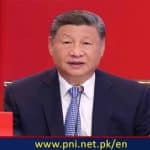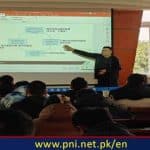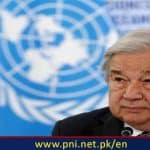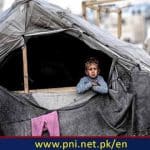Riyadh, Kingdom of Saudi Arabia (PNI Report)
The G20 Leaders’ Summit kicks off today, bringing together leaders from the
world’s leading economies to address global pressing issues.
The G20 Saudi Presidency has demonstrated determined and effective leadership
in, not only gathering the world leaders but taking collective action that benefits
the world.
The Saudi Presidency is led by His Majesty King Salman bin Abdulaziz Al Saud as
the Head of State, with the agenda and direction of the presidency held under hisG
direction, supported by His Royal Highness Crown Prince Mohammed bin Salman
Al Saud. Dr. Fahad Toonsi is the Secretary General for the G20 Saudi Secretariat,
tasked with the responsibility of overseeing and supporting the implementation ofR
the G20 Presidency work this year.
The Sherpa Track is led by Dr. Fahad Al-Mubarak, who has been the G20 Saudi
Sherpa since 2018. Under this track, ministers of the Kingdom chaired ministerial
meetings related to socio-economic issues. The ministers include His Royal
Highness Prince Abdulaziz Bin Salman Al Saud, who chaired the Energy Ministerial
Meeting, Dr. Tawfiq Al Rabiah for Health, Dr. Majid Al-Qasabi, and Eng. Khaled AlFalih, who led the Trade & Investment Ministers Meeting. The Environment,
Agriculture and Water Ministers Meetings were chaired by Eng. Abdulrahman AlFadley, while Eng. Abdullah Al-Swaha chaired the Digital Economy Ministerial
Meeting. Dr. Hamad Alshaikh chaired the education ministerial meeting and Eng.
Ahmed Al-Rajhi chaired the labour and employment one. Ahmad Al-Khatib
chaired the meeting for Tourism Ministers, and Mazin Al-Kahmous led the
discussions on the first ever Anti-Corruption Ministerial Meeting under the G20. Her
Highness Princess Haifa AlMogrin chaired the Development Working Group.
The Finance Track is led by Mohammed Al-Jadaan, Minister of Finance, and Dr.
Ahmed Alkholifey, the Governor of the Saudi Arabian Monetary Agency. With their
leadership, the working groups for the finance track focused on economic
response to global pandemic including debt relief for developing nations,
infrastructure, financial inclusion, economic growth, international financial
architecture, and the global economy
Follow the PNI Facebook page for the latest news and updates.








